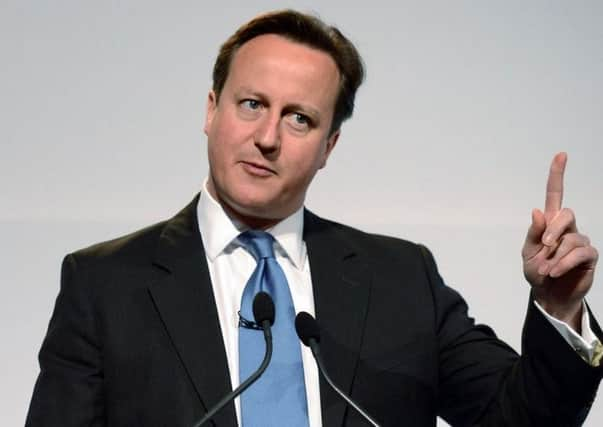PM's plans to restrict House of Lords rejected by peers


The Lords Secondary Legislation Scrutiny Committee (SLSC) joined calls for the upper chamber to retain its ability to throw out secondary legislation - but use it only in “exceptional circumstances”.
The Prime Minister asked senior Tory Lord Strathclyde to review the veto after the Government’s embarrassing defeat over tax credit cuts last year.
Advertisement
Hide AdAdvertisement
Hide AdLord Strathclyde recommended that the Upper House should lose the ability to veto a statutory instrument (SI) - a form of legislation implemented without Parliament having to pass an Act - and should instead be limited to asking MPs to “think again”, leaving the final decision to the elected House of Commons.
It was one of three options - but SLSC chairman Lord Trefgarne said: “Several of our witnesses, including Lord Strathclyde himself, raised the issue of the boundary between primary and secondary legislation, and a concern that a lack of detail in Acts leaves too much to be implemented by statutory instruments.
“If primary legislation presented by Government is adequately fleshed out, subsequent secondary legislation will be subsidiary in the proper sense of the word, and unlikely to face serious Parliamentary challenge.
“We think that the current ‘convention’ should be re-affirmed, in the knowledge that the House of Lords, as a self-regulating institution, can be expected to make a reasonable judgment of whether, and when, it should challenge a statutory instrument.”
Advertisement
Hide AdAdvertisement
Hide AdLast month the Lords Constitution Committee criticised the narrow scope of Lord Strathclyde’s review and warned that proceeding with his recommendations would “damage Parliament’s role and reputation in the long run”.
They recommended that both Houses should now consider the way in which secondary legislation is scrutinised.
The Delegated Powers and Regulatory Reform Committee suggested that a joint committee of MPs and peers should be set up to consider the ways secondary legislation is examined.
Jim Wallace, leader of the Liberal Democrats in the House of Lords, said: “The issue was not one of Lords v Commons, but Parliament holding the Executive to account.”